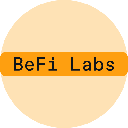 |
|
 |
|
 |
|
 |
|
 |
|
 |
|
 |
|
 |
|
 |
|
 |
|
 |
|
 |
|
 |
|
 |
|
 |
|
Cryptocurrency News Articles
Top 5 Chainlink Competitors: Discover the Best Decentralized Oracle Options
Dec 19, 2024 at 09:46 pm
While Chainlink is the dominant player in the decentralized oracle sector, it's certainly not without competition. Numerous other projects are also tackling the issue of delivering reliable data to blockchain-based smart contracts.

Chainlink is the dominant player in the decentralized oracle sector, but it certainly has competition. Numerous other projects are also tackling the issue of delivering reliable data to blockchain-based smart contracts.
To help you discover the best decentralized oracle options to explore for your next step in crypto development (or investing), we’re showcasing the very best Chainlink competitors.
Before we continue, let’s quickly refresh our memory about the problems Chainlink is looking to address with its solutions. This will also provide us with better context to assess Chainlink’s competitors.
What problems is Chainlink solving?
Smart contracts are very powerful tools, allowing for operations such as transfers of value to be executed deterministically when pre-defined conditions are met. However, blockchains by themselves are self-contained. When it comes to reaching consensus about which transactions are valid, blockchain nodes are concerned with a very narrow set of parameters. Here’s a few examples:
The total amount of cryptocurrency being transferred from one address to another (for example, during a token swap)
The sequence number of a transaction within a block (for example, to ensure transactions are processed in the correct order)
The validity of a signature used to authorize a transaction (for example, to ensure that a private key was used to sign the transaction)
Blockchains are good at determining whether transactions are adhering to their internal rules. However, they are not designed to validate data from external systems, for example the price at which a cryptocurrency is trading on an exchange. So, if you’re for example trying to create a DeFi app that needs pricing data from a crypto exchange, you’ll need some external help.
A service that provides external data to smart contracts running on blockchains is called an oracle. Chainlink is the leading example of a decentralized oracle network, and it provides a wide range of data such as asset prices, reserves, climate data, verifiably random numbers, and much more.
The top Chainlink competitors
1. Pyth
Pyth is a decentralized oracle network that provides real-time price data, historical price data and verifiably random numbers to smart contracts on more than 80 supported blockchain platforms.
In the Pyth network, selected data providers send price data to Pyth’s oracle program. The data for each Pyth price feed is supplied by multiple data providers to ensure accuracy. The oracle program consolidates these multiple data sources into a single aggregate price, which has a confidence interval attached to it. Then, smart contract-based applications can pull the prices from the Pyth network when required.
A key part of the Pyth infrastructure is Pythnet, which is a blockchain network built using the Solana codebase as its foundation. This network communicates with other blockchain platforms through the Wormhole protocol.
PYTH serves as the governance token for the Pyth Network, allowing holders to determine key decisions related to the network.
2. Band Protocol
Band Protocol is a decentralized oracle network that provides price data and verifiably random numbers to smart contracts. Band’s price feeds cover more than 175 crypto assets, but also include certain foreign exchange pairs and commodities to enable new types of decentralized applications.
Band Protocol is integrated with variety of blockchain platforms, including Ethereum, BNB Chain, NEAR Protocol, Fantom and several others.
Band Protocol’s price feeds are used by a number of leading blockchain platforms and applications, including the likes of Celo, Flow, Cronos, Astar and Shiden.
The protocol incorporates a native staking token called BAND, which provides its holders the ability to participate in the protocol’s governance process. The token is also used to reward validators (and their delegators) who maintain the network by processing transactions and producing blocks.
3. API3
API3 is a unique oracle service that rewards applications for using its data. The protocol captures OEV (oracle extractable value) from the usage of its data feeds, and uses it to provide OEV rewards to applications.
In addition to price data, the API3 platform also provides verifiably random numbers which are generated through a process involving quantum mechanics. This feature is available for free and is made possible through a collaboration with the Australia National University Quantum Optics Group and Quintessence Labs.
The API3 platform includes a marketplace where developers can subscribe to data feeds. Notably, the data is provided by first-party sources on their native blockchain, which significantly improves its reliability.
The API3 ecosystem also includes the Airnode API gateway, which enables smart contracts to call APIs that operate outside the blockchain and directly receive data from the without relying on middlemen.
4. DIA
DIA is a platform that provides data to blockchain-based smart contracts. The platform provides token price data, verifiable randomness, as well as real-time price feeds for RWAs (real-world assets) such as stocks and commodities.
DIA has also created a rollup chain that is specifically designed for oracle services. The platform supports more than
Disclaimer:info@kdj.com
The information provided is not trading advice. kdj.com does not assume any responsibility for any investments made based on the information provided in this article. Cryptocurrencies are highly volatile and it is highly recommended that you invest with caution after thorough research!
If you believe that the content used on this website infringes your copyright, please contact us immediately (info@kdj.com) and we will delete it promptly.






























































